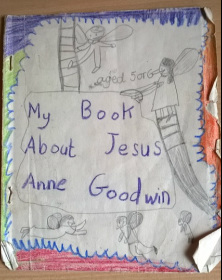
My First Best Friend
We sat side-by-side at the front of Mrs B’s classroom. Together we learnt cross-stitch and joined-up writing, drank stove-warmed milk from a squat glass bottle through a paper straw. Together we held out trembling hands as our teacher progressed from child to child, brandishing a wooden ruler. Together we progressed from Blue Book 1 all the way to Blue Book 6.
On Saturday afternoons I’d ride over to his house to watch Batman and Robin dispatch the villains of Gotham city on his black-and-white TV. On Sunday mornings we’d seek each other out at church.
I thought we’d be best friends forever, until the day he biked round to my house with another bunch of friends. Boys, every one of them. I stayed in my garden, watching till they rode away.
Good writing relies on specifics: a crimson tulip rather than a red flower; a curly-haired Bedlington Terrier rather than a medium-sized dog. In writing fiction, we can choose our details to fit with a picture in our head, to suit the rhythm of the prose or to mirror an underlying theme. In writing memoir, we’re supposed to stick with the facts. Janet Watson had her teenage diaries to guide her but, more than twenty years on, they wouldn’t tell her everything she needed to know to complete her book. Even in my short piece of under 150 words, I’m conscious of gaps in my memory, points where I may have strayed from the truth. I feel uneasy that I might be wrong about the year we learnt joined-up writing, and it’s only an assumption that back in 1965 my friend didn’t have a colour TV. I’m not even sure he was my first best friend. It could be I’m unsuited to memoir because I’m too uptight about these minor details, or too lazy to undertake the meticulous research needed to check them out.
Charli Mills wrote that a memory can send a writer down one of two paths: fiction or memoir. I’d love to know what makes some of us prefer one path to the other. On her blog, Writing My Novel, Teagan Kearney wrote recently on the virtues of fiction and mentioned her surprise at discovering that a friend couldn’t read novels because she was unable to suspend disbelief. I also have a good friend who doesn’t get fiction but the idea is so alien to me we’d been friends for around twenty years before I was aware of it. However this friend does enjoy memoir, which strengthens my belief that some people are more suited to one than the other.
I’m hoping to discover more about this preference for fact versus fiction as the memoir challenge continues, although I can’t guarantee I’ll join in next time.





















 RSS Feed
RSS Feed





















